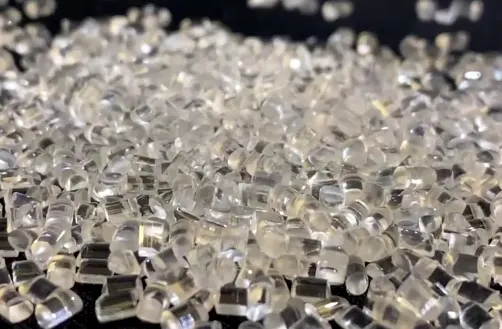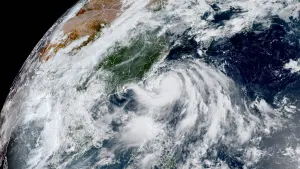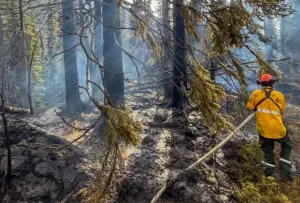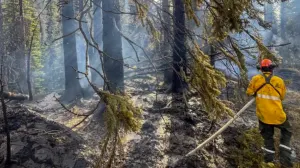
Growing plastic on trees could help curb pollution, here's how
REUTERS - The latest eco-friendly alternative to plastic is made from cellulose harvested from trees grown in sustainably managed forests in Finland.
Inventors of the material, Woodly, say their process transforms wood into pearl-like granules that can then be made in a clear plastic film for use in packaging.
"Woodly is an entirely new type of plastic. It is carbon neutral, wood based, nevertheless it's transparent and it can be used in various types of applications," CEO of Woodly, Jaakko Kaminen said.
The material is designed to be recyclable, but is not biodegradable, however the energy recovered from the products yields 70 per cent less fossil-based carbon dioxide than burning traditional plastics, the company said.

Credit: Reuters/ Aki Lopenen/ Woodly
"In our opinion there are two problems related to plastic packaging. The number one is a human problem, the misuse of plastics, called littering. And the second problem is related to the material itself and that is about climate change and CO2 emissions.
The first problem will be solved by changing the human behaviour and the second problem is solved by redesigning plastics and we are solving the second problem."
Plastics are traditionally made from bi-products of natural materials such as cellulose, coal, natural gas and crude oil after a polymerisation or polycondensation process.
SEE ALSO: Swan seen building nest from plastic in southern Ontario park
Together with packaging manufacturer Wipak, the company aims to have its plastic film products in the stores by the end of 2019.
"We can run this new type of granulate on the same machines that we already have which means that we don't need large scale investments to lower sustainably the carbon footprint of classic packaging. We can just do it on existing machines and existing factories," Henry Henry from Wipak said.
To start off with the bio-based content of the products will be 40-60 per cent depending on the application the company said.
In Finland, more and more consumers are trying to reduce the usage of plastic bags, aware of the need to reduce plastics in general. Plastic packaging currently accounts for more than half of all waste collected in Europe.
(Production: Attila Cser, Ilze Filks)










